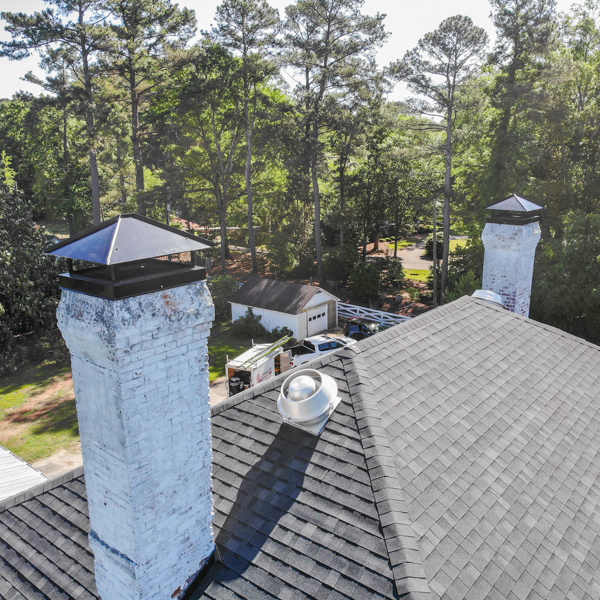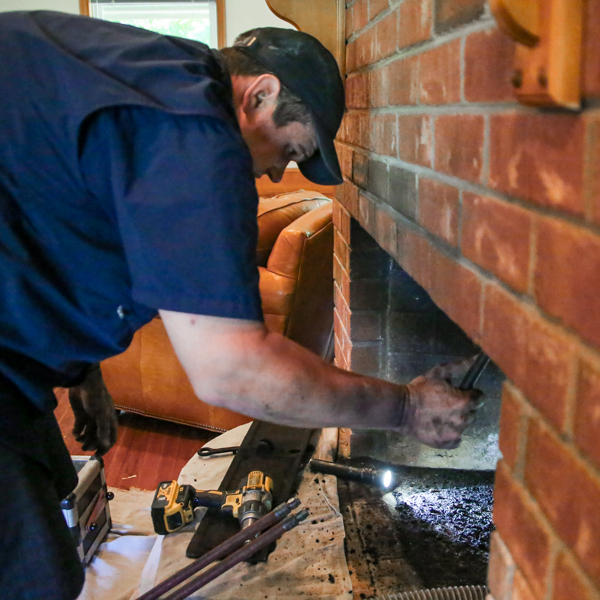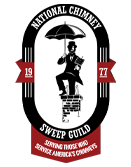Why Venting Unused Chimneys Is Important
With many homes in the Central Augusta River Area (CSRA) and South Carolina Midlands relying on a central heating system, gas furnace, or a direct-vent fireplace insert, unused chimneys are becoming increasingly common. Unfortunately, some folks are under the impression that even though they aren’t using the chimney, it doesn’t need regular cleaning or maintenance. However, your chimney is a living, breathing apparatus. The air that flows through your home also flows through the chimney. So, here’s why proper care of an unused chimney is vital to your home’s venting system.

Remove Toxic Gases & Contaminants from Your Home
The primary function of a chimney is to provide a safe pathway to remove combustion gases from your home. While many homeowners may now have a gas furnace or a direct vent heating stove that doesn’t use an existing chimney, carbon monoxide exhaust can still build up in an unused chimney. If the chimney’s vent is obstructed, these gases will flow back into your home, which can be harmful and potentially fatal to your family and pets.
Even when a home uses a gas or electric furnace for heat, corrosive combustion gases and other byproducts from previous fireplace use are still lingering inside the flue. The corrosion can eat through the chimney liner and masonry. The reduction in indoor air quality exposes family members to harmful contaminants. It can also affect the chimney’s structural integrity, resulting in extensive property damage to your home when it results in a partial or complete collapse.
Prevents Water Damage
When an unused chimney is no longer being inspected, cleaned, or adequately maintained, frequent rain that is common in our tropical warm, and humid climate accelerates masonry deterioration. The damage is even worse for unused chimneys in homes near Hilton Head Island, SC, Wilmington Island, GA, and other coastal communities due to saltwater corrosion. Since most chimneys are attached to the roofline, moisture will affect your chimney and damage the roof, ceiling, and walls around the fireplace.
In addition to brick-and-mortar decay, a humid chimney creates a breeding ground for mold and mildew, which is naturally present in the environment. However, these tiny fungal spores will quickly multiply and enter your home through small masonry cracks without proper ventilation. As a result, you may notice a musty or pungent smell in your house as mold attaches to the walls and ceiling inside the home. It can cause health problems, especially for children, the elderly, and those with compromised immune or respiratory systems.
Protects Your Home from Chimney Fires
Can an unused chimney start a house fire? Chimney flues can contain stage 3 creosote, a dark, tarry, and highly flammable material that is a natural byproduct of combustion. Even though you may no longer be using the chimney, the creosote can ignite when temperatures inside the chimney reach 450°F, according to the Chimney Safety Institute of America. The surface temperature of a ventilated asphalt roof can exceed over 160°F in the summer heat. So, an unventilated chimney certainly increases the risk of a fire that can quickly spread to nearby combustible materials like the attic, roof deck, ceiling, and walls.
 An Unused Chimney Still Needs Annual Inspections and Periodic Sweeping
An Unused Chimney Still Needs Annual Inspections and Periodic Sweeping
Since an unused chimney is still an essential ventilation component of your home, it requires annual inspections and maintenance, including cleaning and repairs when necessary. This will also protect its structural integrity, indoor air quality, and the health and safety of your family.
Advanced Chimney Sweep provides professional chimney inspections, cleaning, and repairs for unused chimneys in Richmond Hill, GA, Limehouse, SC, and communities throughout the CSRA and South Carolina Midlands region. Call (706) 833-4630 or (803) 508-3990 to schedule an appointment or contact a technician online today!





